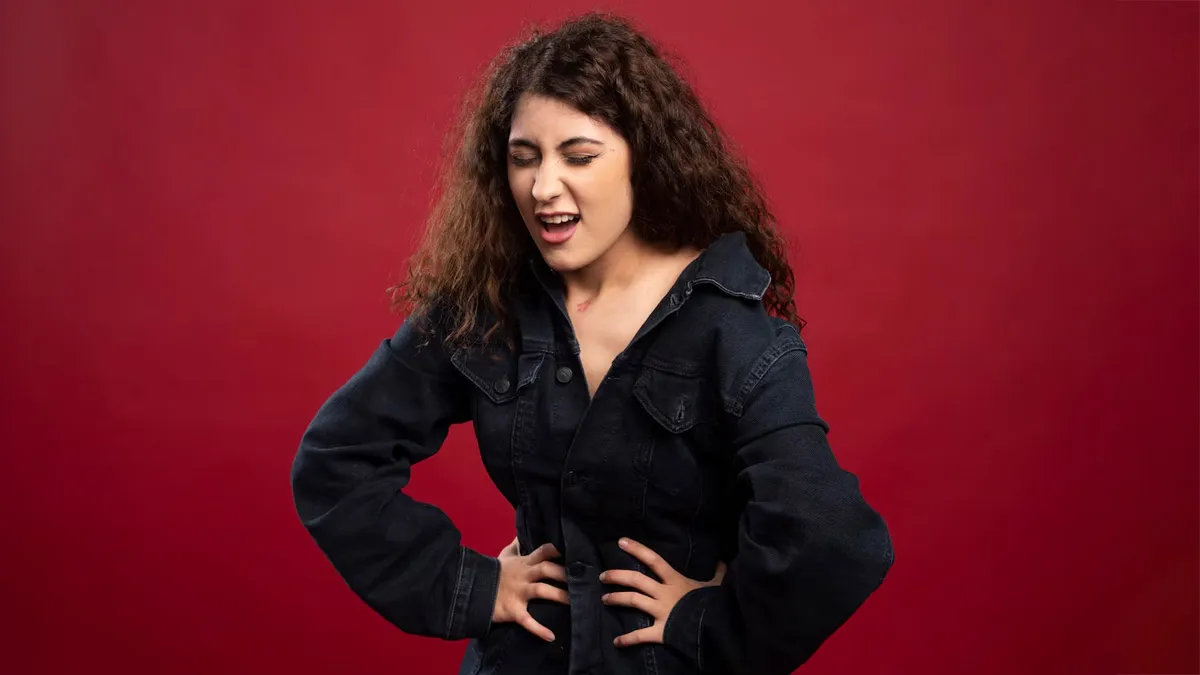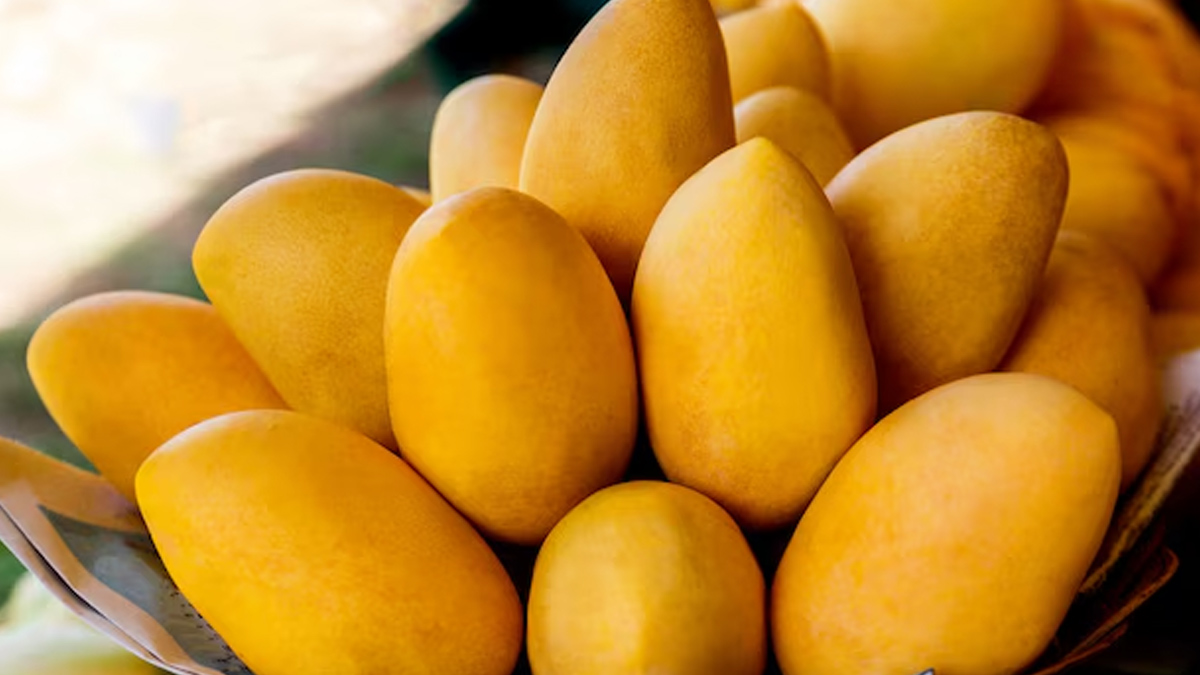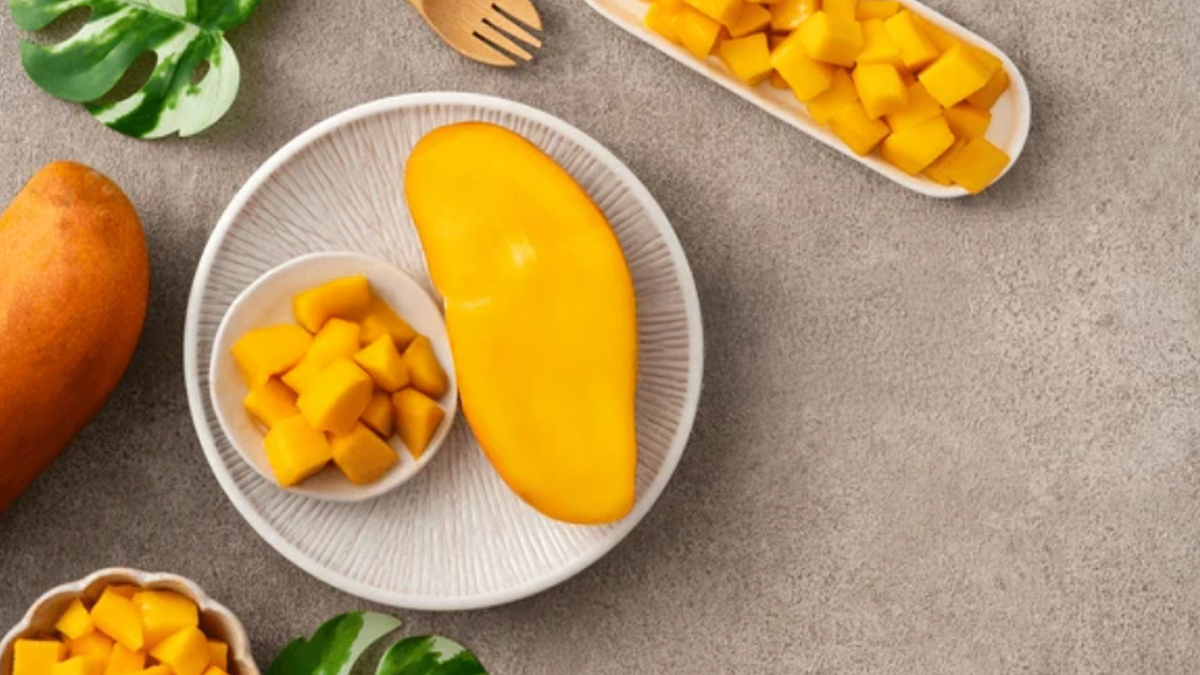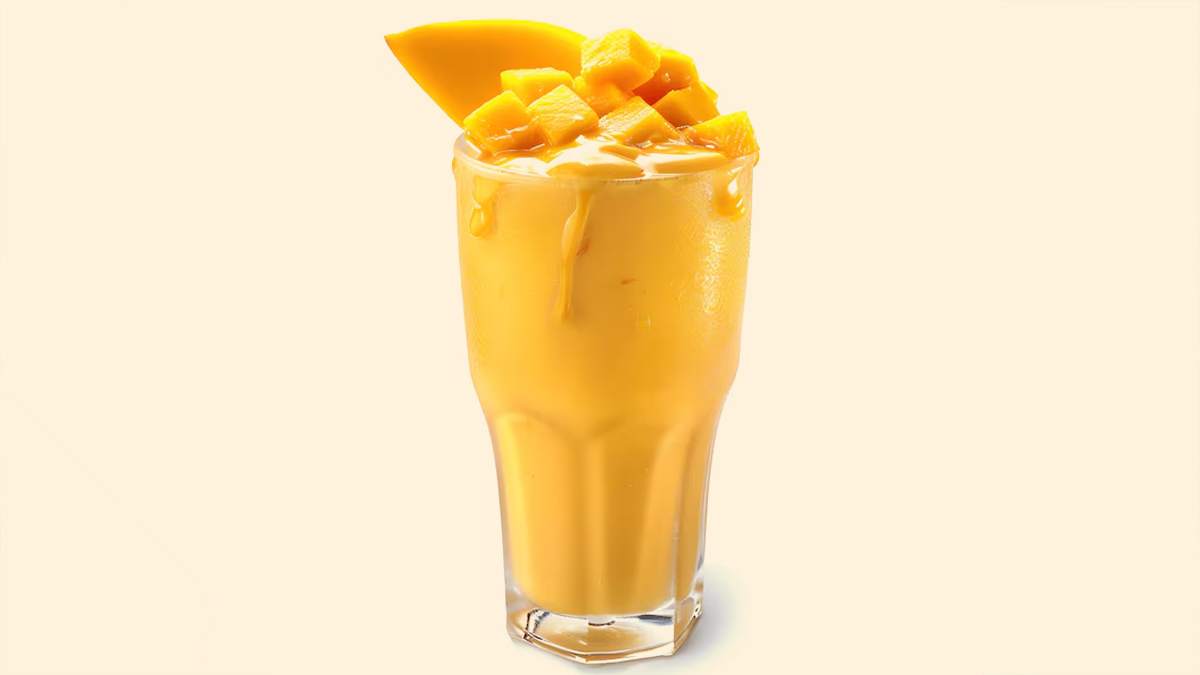
Mango season is pure joy. That first bite of a juicy Alphonso or the tangy sweetness of a Langra can feel like a warm hug from summer itself. However, for many, the joy of relishing this king of fruits is often followed by uncomfortable bloating, gas, and digestive issues. Mango bloat is a common concern and it's not just about the fruit itself, but also about how we consume it.
Table of Content:-
Why Do Mangoes Cause Bloating?
They’re High in Natural Sugar

Mangoes, as noted by the US Department of Agriculture, are rich in natural sugars including glucose, fructose, and sucrose, with a single fruit containing 46 grams of sugar. Although our bodies are made to break down fruit sugars, consuming too much at once can overload the digestive system, especially if you already have a sensitive stomach or have issues with fructose malabsorption. This causes fermentation in the gut, which creates gas and bloating.
They’re Also High in Fibre
A medium-sized mango can contain around 3 grams of fibre. This is great for digestion in moderation, but if your body isn’t used to high-fibre foods or you’re eating multiple mangoes at a time, it can backfire. Too much fibre can slow digestion and trap gas in the intestines.
You’re Eating Them Wrong
Munching on mangoes with meals, gulping them down quickly, or combining them with milk-based sweets can disrupt digestion. Mixing them with heavy or incompatible foods can also lead to bloating and a sluggish gut.
Also Read: Can Eating Mangoes Lower Your Blood Pressure? Expert Shares the Medicinal Benefits
Signs You Might Be Experiencing Mango Bloat
- Gassy, uncomfortable belly after eating mangoes
- Stomach cramps or tightness
- Feeling unusually full or heavy
- Burping or flatulence shortly after mango intake
How to Eat Mangoes Without Feeling Gassy
You don’t have to give up mangoes altogether. A few smart tweaks can help you enjoy your favourite fruit without the bloat.
Portion Control Is Key

It is tempting to overindulge in mangoes, especially when they’re in season, but moderation matters. Limit yourself to half to one mango a day if you're prone to bloating. You’ll still get all the flavour without overwhelming your gut.
Don’t Mix with Heavy Meals
Avoid eating mangoes right after lunch or dinner. Give your stomach at least an hour or two before indulging. When you pile mangoes on top of an already full stomach, your digestive system gets overloaded, leading to bloating and fermentation.
Skip the Milkshake

Mango milkshakes or aamras with pooris might be a classic combo, but for sensitive stomachs, it’s a recipe for gas. Mangoes and milk can be a tough mix, especially for people who are lactose intolerant. If you must have aamras, keep the portion small and don’t pair it with oily or fried food.
Also Read: Here’s Why You Should Soak Mangoes Before Eating
Chew Slowly and Mindfully
Sounds simple, but chewing properly is a game changer. The longer you eat, the more digestive enzymes get mixed with your food, the better it is for your gut. Eating slowly also stops you from overeating, which is usually the silent reason behind mango bloating.
Eat Mangoes in the First Half of the Day
Your metabolism is more active earlier in the day, and your body is able to digest fruit better. Eat mangoes as a mid-morning snack or an appetiser before lunch rather than as an evening snack.
Pair It With Gut-Friendly Add-ons
Sprinkling a bit of black salt or roasted cumin powder (jeera) on mango slices can aid digestion and reduce bloating. Ayurveda has long suggested this as a balancing act, a little heat and bitterness to offset the fruit’s sweetness.
When to See a Doctor
If bloating becomes a regular issue or you experience severe gas, diarrhoea, or cramping even after small portions of mango, you might be dealing with fructose intolerance or IBS (Irritable Bowel Syndrome). A gastroenterologist can help diagnose the root cause.
[Disclaimer: This article contains information for informational purposes only. Hence, we advise you to consult your professional if you are dealing with any health issue to avoid complications.]
Also watch this video
How we keep this article up to date:
We work with experts and keep a close eye on the latest in health and wellness. Whenever there is a new research or helpful information, we update our articles with accurate and useful advice.
Current Version